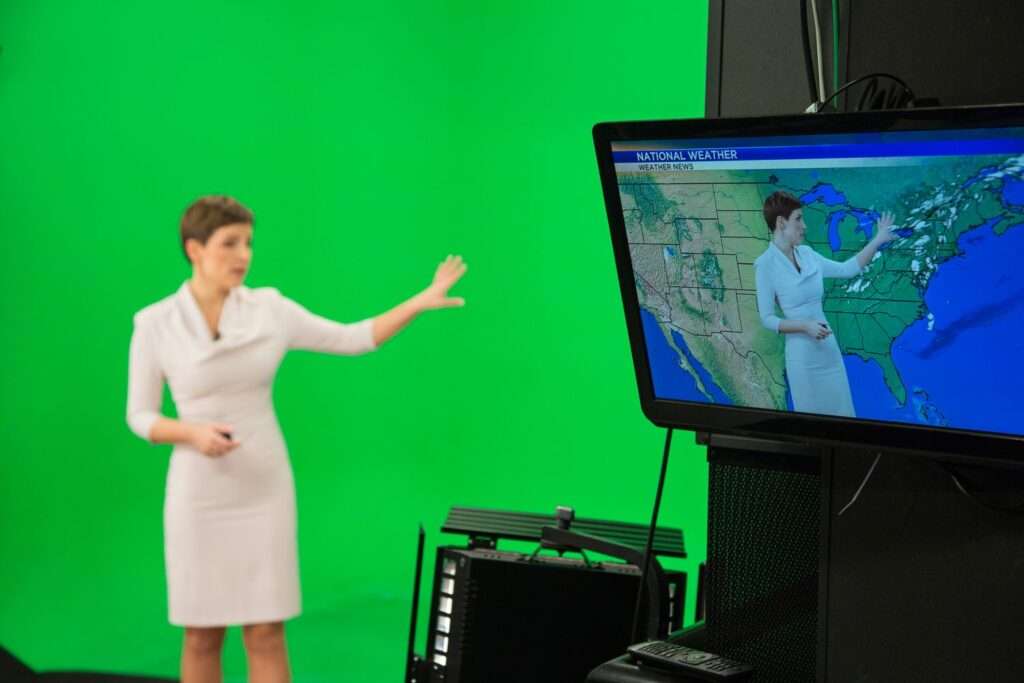In this content, you will discover detailed insights into salary of a meteorologist, comparing earnings across different industries and regions. Whether you’re starting your career or looking
to advance, this guide covers everything from average salaries to factors influencing pay in
different sectors. Read on to explore how location, experience, and industry impact a
meteorologist’s salary.
What is the Average Salary of a Meteorologist in 2024?
Meteorologists play a important role in predicting weather patterns, helping industries and the
public make informed decisions. If you’re considering a career in meteorology or simply curious
about the earnings in this field, understanding the salary range is essential. In this guide, we’ll
explore their salaries, factors that influence earnings, and how location and experience
affect compensation.
The salary of a meteorologist varies significantly based on location, industry, and experience. In
the USA, they typically earn between $52,000 and $85,000 per year. Senior meteorologists, especially those in specialized industries like aerospace and manufacturing, may command higher salaries due to the precision required in their roles. On average, the annual salary for meteorologists in the USA is approximately $67,000.

New York Meteorologist Salary in 2024
Meteorologists in New York tend to earn higher-than-average salaries compared to other states,
largely due to the region’s demand for accurate weather forecasting in media, aviation, and
government roles.
In 2024, the average salary for a meteorologist in New York ranges between $60,000 and $100,000 annually, depending on factors such as experience, specialization, and employer. Chief
meteorologists and those working for top media outlets or private sectors can earn over $120,000
per year.
What is the Starting Salary for a Meteorologist?
The starting salary reflects the entry-level compensation for those new to
the field. In the United States, entry-level meteorologists usually earn between $35,000 and $50,000 annually. This can vary based on location, type of employer, and the educational background.
Chief Meteorologist Salary: Overview of Earnings Across International Markets
Chief Meteorologists hold prestigious positions, often leading meteorological teams and
overseeing the accuracy of weather predictions. Salaries for these senior roles vary significantly
worldwide, depending on the market, industry, and level of expertise required. In the USA,
they typically earn between $100,000 and $150,000 annually, with higher pay possible in major media organizations and regions requiring specialized forecasting.
Globally, markets in Europe and Asia offer competitive packages, especially in countries with
frequent extreme weather events, where meteorological expertise is in high demand.
International media networks and specialized sectors, such as aviation and environmental
agencies, may offer salaries well above the global average for experienced professionals in these
senior roles.
International media networks and specialized sectors, such as aviation and environmental
agencies, may offer salaries well above the global average for experienced professionals in these
senior roles.
Top Cities and Roles for Meteorologists with Six-Figure Salaries
Certain cities and states offer higher-than-average salaries for meteorologists. For instance,
some can command six-figure salaries in specialized or high-demand roles.
Chief meteorologists at large news stations or those working for private weather services often
earn over $100,000. Additionally, some in government roles such as those in the
National Weather Service (NWS) or NASA can also see high compensation packages.
Meteorologists in specialized roles, such as those working in aviation forecasting or disaster
management, tend to earn higher salaries. Professionals involved in consulting for industries
like agriculture or energy may also see increased earning potential. Senior positions in
government agencies, such as department heads or chief meteorologists, often offer salaries in
the range of $100,000 to $150,000 annually.
Metrologist Salary by Industry
- Government Meteorologists
Those working with government agencies such as the National Weather Service (NWS) typically earn an average salary of around $80,000 annually. - Broadcast Meteorologists
Those working for television or radio stations generally earn between $50,000 to $120,000, with salaries influenced by market size and experience. - Private Sector Meteorologists
Those consulting in sectors such as agriculture, oil and gas, or energy in Nigeria can command higher salaries due to the critical need for accurate weather forecasts in these industries. Salaries for private sector meteorologists in Nigeria are generally higher than those in government roles, though specific figures vary. In the U.S., private sector meteorologists, particularly those working in energy, agriculture, or consulting, can earn above $100,000 annually.
Factors Influencing Meteorologist Salaries
- Education and Experience: Those with advanced degrees
such as a Master’s or Ph.D. tend to earn more. Experience is also key, as meteorologists with more years in the field command higher salaries. - Industry: Meteorologists in media or private consulting tend to have higher salaries than those in government or academic roles. In specialized industries, such as aviation or energy, they often earn higher wages due to the demand for accurate forecasting.
- Location: The demand for weather forecasting varies by location. In countries like the U.S., meteorologists in high-demand states such as New York earn more than those in rural or low-demand areas.
They play an important role in forecasting weather and providing information for
various sectors, including agriculture, broadcasting, and private industries. Salaries for
meteorologists vary widely based on factors such as location, industry, and experience.
In the U.S., government meteorologists generally earn around $80,000 annually, while private sector roles can offer salaries well above $100,000. Meteorology offers diverse career opportunities with competitive salaries, especially for those in specialized or high-demand roles. Understanding these factors can help prospective meteorologists make informed career decisions and navigate their earning potential effectively.



